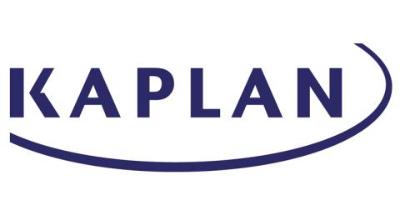Embracing the AI Revolution: A Deep Dive into AI's Impact on CPAs and Tax Professionals

Exploring the Integration of AI in Accounting Software, Hiring Impacts, Revenue Shifts, Professional Challenges, and Client Benefits
The integration of Artificial Intelligence (AI) into the accounting sector has generated a seismic shift in the way Certified Public Accountants (CPAs) and tax professionals work. As AI continues to evolve, it is pivotal to explore its potential impact, highlighting specific software integrations, alterations in the hiring landscape, potential revenue changes, challenges for professionals, and benefits for clients.
AI and Accounting Software: A Perfect Symbiosis
AI's integration with accounting software has been transformative, making the accounting process faster and more efficient. Sophisticated software solutions like QuickBooks now employ AI for automating tasks, enhancing fraud detection, and offering predictive analytics. For instance, the platform utilizes AI to categorize and match transactions, helping reduce manual entry errors. Similarly, Xero's AI assistant provides insights and tips based on a user's unique business activity. This AI feature helps CPAs and tax professionals manage their clients' financials effectively, tailoring advice based on AI-provided data insights. AI also enhances audit software. Tools like MindBridge's Ai Auditor leverage AI to identify unusual transactions or anomalies, which could signify fraud or non-compliance. It aids auditors by prioritizing high-risk items, thus maximizing efficiency and effectiveness in the auditing process.
Impact on Hiring and the Workforce
AI is reshaping the skills required in the accounting workforce. While it automates repetitive tasks, it also necessitates a workforce that can interpret and utilize AI-generated data. This shift creates a growing demand for accountants with tech-savvy skills, who can harness AI tools for strategic decision-making and financial planning. Simultaneously, AI's rise could reduce the demand for entry-level accounting roles focused on data entry and basic bookkeeping. As a result, hiring may lean towards candidates with a blend of financial acumen, AI literacy, and strategic thinking skills.
Potential Revenue Shifts
AI promises to drive revenue growth in the accounting sector by increasing efficiency and enabling firms to offer value-added services. With automation handling tedious tasks, CPAs can allocate more time towards advisory roles and client relationship management, which could lead to higher billable hours. Furthermore, the predictive analytics provided by AI can uncover growth opportunities, streamline financial management, and help firms offer strategic advice to their clients, thus generating additional revenue streams.
Professional Challenges in an AI-Driven Environment
While AI offers multiple benefits, it does present challenges for CPAs and tax professionals. One significant hurdle is the steep learning curve associated with new technologies. Accountants must familiarize themselves with AI tools and learn to interpret and apply the insights generated by these systems effectively. Data security and privacy are other areas of concern, as AI systems handle sensitive financial data. Hence, accountants need to ensure robust security measures are in place to prevent data breaches. Lastly, the cost of AI implementation might be a deterrent for smaller firms, who may find it difficult to invest in expensive AI software and the training required for its optimal use.
Benefits for Clients
The integration of AI in accounting primarily enhances client satisfaction. It allows for quicker, more accurate audits, and the ability to offer strategic advice based on predictive analytics. AI-powered chatbots can provide instant responses to client queries, improving customer service and engagement. Moreover, AI can identify cost-saving opportunities in tax planning that a human might overlook. By leveraging AI, accountants can ensure their clients remain compliant with tax laws while minimizing their tax liability, ultimately delivering greater value.
Concluding Thoughts: The Future of AI in Accounting
Artificial Intelligence has ushered in a new era in the accounting industry, impacting software integrations, the workforce, revenue potentials, and client services. Although it presents a set of challenges, the opportunities it offers for increased efficiency, revenue growth, and enhanced client service are considerable. The key lies in adapting to the change. Accountants who embrace AI, upskill themselves, and harness the power of AI will not just survive but thrive in this evolving landscape. The future of accounting is not about humans versus AI, but about humans empowered by AI, transforming challenges into opportunities.
Share This Article
What's Trending?
Trending topics & tools for the CPA community
How Firms are Rethinking Reasonable Comp (Quick Video)
It’s a short video and makes the value of repeatable, data-backed approach clear (especially compared to spreadsheets, gut checks and one-off calculations).
Learn how 8am CPACharge delivers clarity and confidence for accounting firms.
8am™ CPACharge brings invoices, payments, and reconciliation together in a solution designed to make your day easier from start to finish.
Seniors on Social Security Could Face $460 Monthly Cut to Benefits
Jim Komoroski, RSSA®, is quoted in Newsweek, offering expert insight into the projected monthly cuts to Social Security benefits should Congress fail to act.
Resources
Valuable information provided by our sponsors.
Specialize in Social Security
Looking to enhance your retirement planning expertise? Your solution: pursue the Registered Social Security Analyst®...
CPAdirectory members have access to discounted auto and home insurance
At CPAdirectory, we think it's a good thing to provide our members with access to...
Free CPE Course: ChatGPT for Tax Pros — Limited Offer
CPAdirectory and CCH CPELink are giving you free access to the on-demand course: ChatGPT for...
PE Deals In Accounting: Valuations, Structure, Tradeoffs
In this webinar, you’ll hear from firm leaders and industry experts who will share real-world...
Stand Out as a Trusted Social Security Expert with the RSSA® Designation
Designed for CPAs, the Registered Social Security Analyst® (RSSA®) designation provides advanced training to help...
How Firms are Rethinking Reasonable Comp (Quick Video)
It’s a short video and makes the value of repeatable, data-backed approach clear (especially compared...













